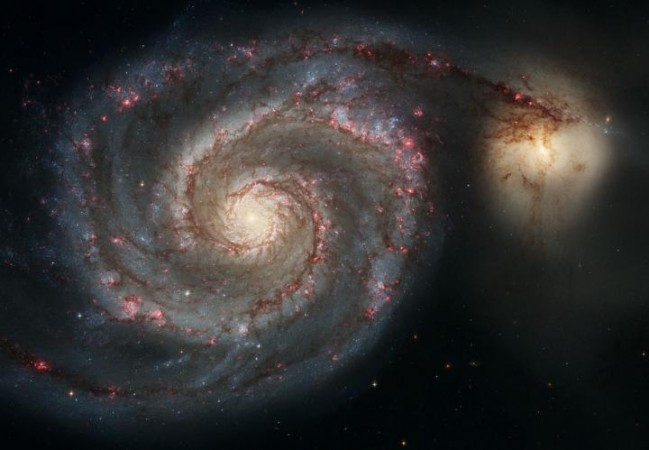
The scars of a galactic collision with a 'ghostly galaxy' are still bleeding in the Milky Way. A recent study suggests that Milky Way's collision with the Antlia 2 galaxy is responsible for the large ripples in the Milky Way's outer hydrogen gas disc.
The ripples in the outer hydrogen gas disc have perplexed scientists for years and this new revelation seems to be the most convincing explanation.
During the study, researchers collected data from the European Space Agency's Gaia satellite and learned more about the trajectory of Antlia 2. In-depth analysis of Antlia 2's trajectory suggested that it could have collided with the Milky Way hundreds of millions of years ago.
It should be noted that Antlia 2 is a massive galaxy with a relatively low density that orbits the Milky Way and an ancient powerful collision is still causing that unending ripples in Milky Way's outer edge.
Sukanya Chakrabarti, a Rochester Assistant Professor who led the study revealed that learning more about Antlia 2 could help to unveil the mysteries surrounding dark matter, one of the most complex entities in the universe.
"We don't understand what the nature of the dark matter particle is, but if you believe you know how much dark matter there is, then what's left undetermined is the variation of density with radius. If Antlia 2 is the dwarf galaxy we predicted, you know what its orbit had to be. You know it had to come close to the galactic disc. That sets stringent constraints, therefore, on not just on the mass, but also its density profile. That means that ultimately you could use Antlia 2 as a unique laboratory to learn about the nature of dark matter," said Chakrabarti in a recent press release.
The recent findings were submitted to The Astrophysical Journal Letters.
A few months ago, space scientists had revealed that the Milky Way will collide with Andromeda galaxy in another four billion years. Even though it is still unclear whether humanity will survive in the earth to witness this galactic collision, experts made it clear that this clash will be so deadly, and only one galaxy will emerge victoriously.









